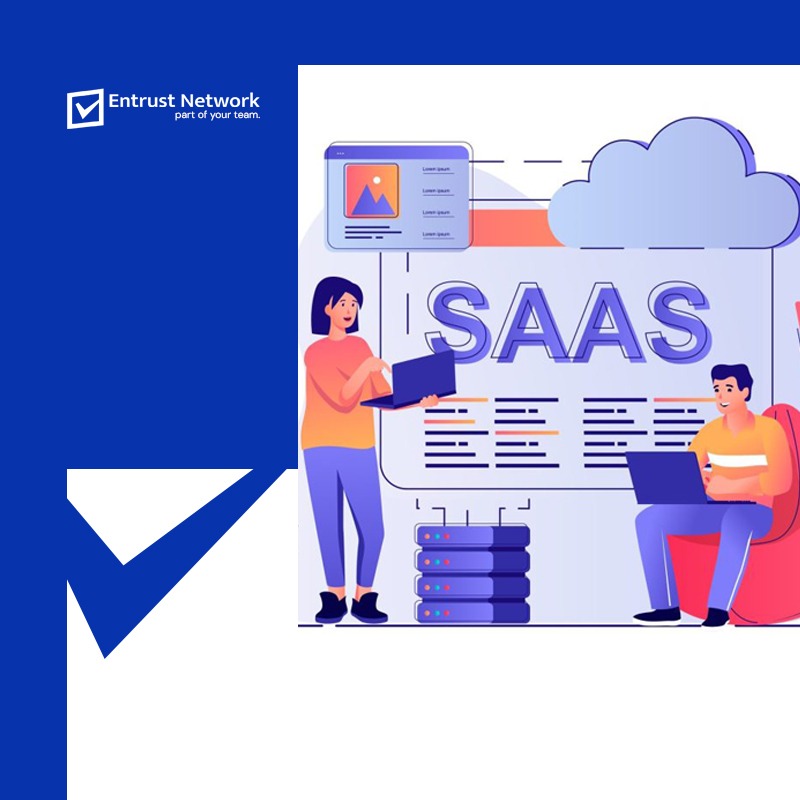
Software-as-a-Service (SaaS) is a model that has existed for a while yet only gained traction recently. This could be attributed to challenges like limited internet connectivity, security concerns, and high installation costs, which played a part in hindering its widespread adoption and causing problems such as duplicated data and lower productivity to businesses. But now, thanks to advancements in technology, notably faster internet, the availability of managed IT cloud solutions, and better security measures, SaaS is coming back stronger, offering features that are revolutionising how businesses adopt the software. In this article, we’ll explore how it benefits modern businesses.
Defining SaaS
In simple terms, SaaS is a cloud computing model that delivers software applications over the internet. Unlike traditional software that involves heavy hardware and software investments, SaaS allows subscribers to directly access programmes through a web browser or an application interface, without requiring their own devices or servers. The service provider is responsible for hosting and maintaining the software, diligently performing tasks like updates, security, and data backups.
Learn more: Case Study – Backup and Recovery Solution
Benefits of SaaS
1. Functionality and Accessibility
In response to the rise of remote work and the growing need for collaborations across geographically dispersed teams, SaaS applications support businesses in staying productive and agile, regardless of their locations and devices. This approach allows everyone to access shared tools and resources effortlessly, ensuring that teams are on the same page to achieve common goals together. The outcome is elevated efficiency and team cohesion. To keep SaaS up and running at all times, businesses in Singapore can leverage the expertise of IT support services to conduct regular monitoring, provide guidance on best practices, and troubleshoot technical issues, if any.

2. Cost-Efficiency
With the deployment of SaaS, hefty upfront investments in hardware and software licences and technology infrastructure have become a thing of the past. SaaS operates on a subscription-based model that only charges businesses a predictable monthly or annual fee to access the software. Besides an inclusive software cost, the subscription framework also covers maintenance, updates, and support services. As such, businesses can save on significant setup expenses and redirect funds toward core business activities, including marketing, product innovation, or new ventures.
3. Scalability
Business needs are constantly evolving, and having a scalable IT solution can give companies a competitive edge. Regardless of the size of your business – a small startup or a large enterprise, SaaS eases concerns related to long-term commitments and makes adjusting subscription plans easy. In the event that you’re planning to expand or increase headcount, you’ll be given the flexibility to add more user licences, storage space, or computing power without having to pump in significant funds to set up hardware from scratch. Similarly, budget constraints or lull periods can be adapted to by simply scaling down resources to optimise costs.
4. Automatic Updates and Maintenance
Businesses may find it daunting to keep software up-to-date due to the potential disruptions and hassle of seeking dedicated IT resources. Fortunately, SaaS can address these challenges by offering built-in automatic updates and maintenance features, freeing companies from manual tasks while granting access to the latest functionalities, and security patches. This guarantees a seamless user experience without compromising security and compliance, thereby giving businesses peace of mind.
As the adoption of cloud-based solutions become more widespread, SaaS will continue to play a pivotal role in driving innovation and unlocking new opportunities. Consider implementing the cloud computing model to enjoy streamlined processes and elevated productivity.
Entrust Network offers a range of IT managed services in Singapore to direct you toward organisational success.
